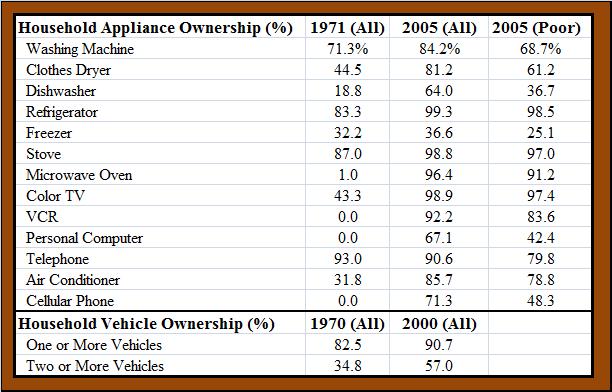Tax wrote:New organisations start all the time: charities, coops, companies, they don't start in a vacuum.
A soviet is not a company. They are "the weapons of proletarian dictatorship:"
John Reed wrote:As all real socialists know, and as we who have seen the Russian Revolution can testify, there is today in Moscow and throughout all the cities and towns of the Russian land a highly complex political structure, which is upheld by the vast majority of the people and which is functioning as well as any newborn popular government ever functioned. Also the workers of Russia have fashioned from their necessities and the demands of life an economic organisation which is evolving into a true industrial democracy.
...THE SOVIET is based directly upon the workers in the factories and the peasants in the field. At first the delegates of Workers’, Soldiers’ and Peasants’ Soviets were elected according to rules which varied with the needs and population of various localities. In some villages the peasants chose one delegate for each fifty voters. Soldiers in garrison were given a certain number of delegates for each regiment, regardless of its strength; the army in the field, however, had a different method of electing their Soviets. As for the workers in the great cities, they soon found out that their Soviets became unwieldy unless the delegates were limited to one for each five hundred. In the same way, the first two All-Russian Congresses of Soviets were roughly based upon one delegate for each twenty five thousand voters, but in fact the delegates represented constituencies of various sizes.
...Ill-informed observers, mostly from the middle class intelligentsia, are fond of remarking that they are in favour of the Soviets, but against the Bolsheviks. This is an absurdity. The Soviets are the most perfect organs of working class representation, it is true, but they are also the weapons of proletarian dictatorship, to which all anti-Bolshevik parties are bitterly opposed. So the measure of the adherence of the people to the policy of proletarian dictatorship is not only measured by the membership of the Bolshevik Party – or, as it is now called, the Communist Party – but also by the growth and activity of local Soviets all over Russia.
There can be no proletarian dictatorship running smoothly along the dictatorship of the bourgeoisie. Why not? Essentially, because history works and is not a vacuum.
Tax wrote:If you say soviets can't start unless it has a vacuum or takes over an existing organisation then I humbly suggest you don't actually think soviets are a good enough organisational structure to cope in the real world.
The point is that nothing is in a vacuum. Nothing "takes over" an existing organisation as you put forth.
Two reasons:
1. Again, a soviet is not just a company. It's the weapon of proletarian dictatorship, it's the first manifestation in a new means of production—a base of society.
2. There is no "taking over" one of these tiny organizations and starting it up. You smugly call capitalism, "the real world," but this ignores 99.9% of human history so you can try to impose a tyranny of your thought. Capitalism is the latest in ways that we interact with the material world.
Let's, again, say you're in the paleolithic. The vast majority of human existence. Your men are out there hunting, everyone pulls their berries and roots and shit together they've gathered all day when they feast. Great.
Agriculture moves us to the neolithic, and from there we move to urbanization, slavery; slavery breaks down as a viable means to run an entire society due to its own success, and feudalism comes about. Feudalism, itself, begins to break down do to those doing the trading and demanding the goods and capitalism comes about.
At no point do you have someone in the paleolithic arguing the responsibilities of serfdom or someone in ancient Sparta fretting about a bear market because price on companies's market share have changed. You paint a fantasy land where there is no history and people are just moving through time and space so whatever lie you need to tell yourself to make capitalism eternal can be set up as absolute truth. But reality isn't like that, it's not a fantasy-land.
In the same way, nobody in the neolithic built a soviet. People in the capitalist world did, and just as the fact that enough slaves means that you're spending more on slaves than on other production spelled the end of slavery as a viable means of production, the effective organization of the masses of working people in opposition to the few profiting from them spells the end of capitalism.
Tax wrote:The market is all about providing what people want if people wanted slavery and the rest then yeah there could be such things, but there is the problem nobody wants to be a slave or a serf.
Ugh, more libertarian Newspeak.
That's not what a market is, nor is that what it inherently sets out to do.
Let's assume your absurd Newspeak propaganda is somehow true, but there is a problem nobody wants to clean toilets or be a prostitute. Yet the market provides for that. Let's leave your attempt to redefine language in order to make a flagrant lie that creates an idea that is clearly not true aside for now.
Tax wrote:Are you saying soviets are just as unattractive as slavery and serfdom?
No. I'm saying that the soviets are the forerunner to socialism, a mode of production. Slavery and feudalism are also modes of production. As is capitalism.
Tax wrote:Why would advocate an organisational structure that you believe would be just as unattractive as slavery?
1. The structure of the soviet is not as "unattractive as slavery."
2. Unlike the idealists, the materialists look at the real world. I agree that slavery is unattractive, but that doesn't mean that it didn't exist. To reduce it to a slur and then try to find a convoluted way to try and tack it on to a completely unrelated system simply demonstrates how vapid and empty your ridiculous ideology is.
Tax wrote:Every communist I have ever encountered has always given the impression that theft would be the normal way of doing business for a soviet.
Source?
Tax wrote:They say trade is bad and we can just take whatever we want, and this kind of thing.
Source?
Tax wrote:But this is just stupid and self-defeating. Look at the Mafia, they used to do extortion and bank robberies and the like but they didn't really make great wealth for themselves until they got into trafficking prohibited goods (booze, drugs) that is they made more money from trade than they did from theft. Governments make a living through stealing, and transnational corporations make a living through trade. Governments are all teetering on bankruptcy and the corporations are loaded with cash. Trade is better than theft.
And here's why you made up those lies. So you can then falsely equate socialism, which you've redefined to be something you feel like arguing against, to the Mafia and government. Two things you somehow equate to existing outside of capitalism and then lie to try to equate all these things together.
Your ideology is based upon lies and ignorance that your masters have fed you with. Stop groveling before them. Wake up and look around at how the world works instead of redefining actual things into concepts that no longer exist. Libertarians must cease their Newspeak and get a hold of a dictionary. Once libertarians acknowledge that the material world exists and get a grip on using words in the same way adults do, we can have a real discussion instead of a lesson on etymology and logic every time these lies come up.

Alis Volat Propriis; Tiocfaidh ár lá; Proletarier Aller Länder, Vereinigt Euch!

















 The rest of your post is just crazy gibberish which I can't take seriously enough to bother answering.
The rest of your post is just crazy gibberish which I can't take seriously enough to bother answering.
 - By wat0n
- By wat0n - By Potemkin
- By Potemkin